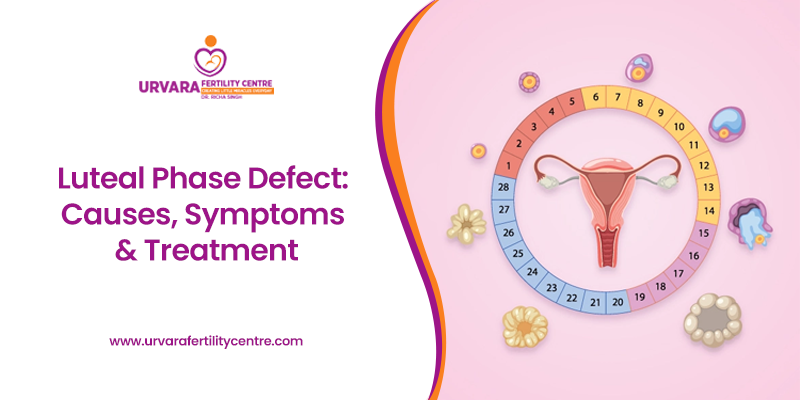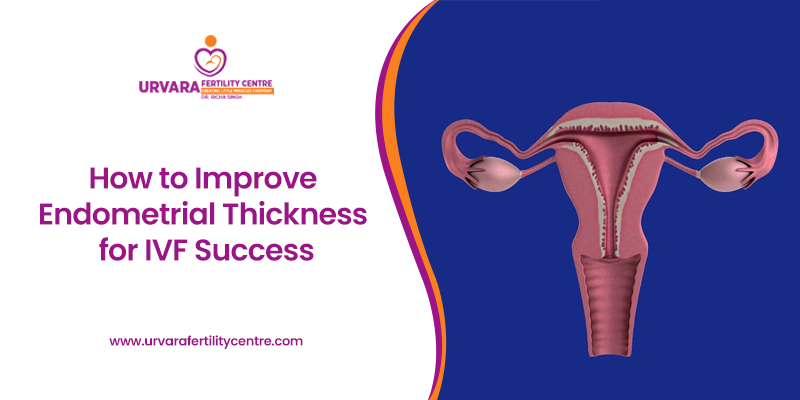If you are trying to get pregnant but are not able to conceive even after many years, then the possible reason behind it could be a luteal phase defect. Well, the luteal phase is one of the stages of your menstrual cycle. It takes place after ovulation and before your period starts. The average luteal phase length is 12-14 days. Some people have a short luteal phase, which means their periods begin within 10 days of ovulation. Others have a long luteal phase and don’t get their periods for up to 17 days or longer after ovulation. Let’s understand what is luteal phase defect and its causes, symptoms, and treatments.
Explore About Luteal Phase Defect
When your ovaries don’t produce enough progesterone after ovulation it ultimately limits the uterine lining growth which can decrease the chances of embryo implantation and fetal development. If there isn’t a fertilized egg and you don’t get pregnant then progesterone levels decrease in your body after that you will get your period. Some common signs of luteal phase are sore breasts, acne, bloating, mood swings, feeling hungrier, vaginal discharge, and bloating.
What are the Causes of Luteal Phase Defect?
Well, as per the Best IVF Specialist in Lucknow, there is no exact cause behind the luteal phase defect, but the most common causes of luteal phase defect are defined here.
- Endometriosis
Endometriosis affects progesterone levels and could increase your risk of a luteal phase defect.
- Underactive or Overactive Thyroid
Thyroid dysfunction may cause short luteal phase, and this results in loss of early pregnancy. The irregular menstrual cycle is also faced by many women who have an underactive or overactive thyroid.
- Stress
Another cause behind the luteal phase defect is stress. Due to stress hormone levels in your body get affected and it also decreases the chances of successful fertilization.
- Polycystic Ovarian Syndrome
Polycystic ovary syndrome is responsible for hormonal imbalances and disrupts your menstrual cycle. It may decrease the level of progesterone in your body leading to luteal phase defect.
- Anorexia
Anorexia is an eating disorder that causes people to weigh less than is considered healthy and it results in excessive weight loss. This is also the reason behind the Luteal Phase Defect.
Other than these obesity and extreme exercise may also be responsible for the luteal Phase defect.
What are the symptoms of a Luteal Phase Defect?
Most of the women with the luteal phase defect may not experience any symptoms of the luteal phase defect and they may face difficulty in conceiving. Common symptoms of luteal phase defect are Spotting between periods, Bloating, Headaches, Weight gain, Changes in sexual desire, Headaches, Breast swelling, Difficulty sleeping, and more.
How to Diagnose a Luteal Phase Defect?
To diagnose a luteal phase defect, blood tests to check the hormone levels of progesterone, follicle-stimulating hormone, estrogen, and luteinizing hormone. Ultrasound is also performed to determine uterine lining thickness. It is important to understand hormone levels because different hormones work specifically in a woman’s body.
Progesterone level is responsible for growing your uterine lining after ovulation and follicle-stimulating hormone causes your follicles to grow each cycle. Follicles contain your eggs. Whereas estrogen hormone is made by the developing follicle and causes thickening of the uterine lining before ovulation. On the other hand, luteinizing hormone triggers ovulation or the release of an egg from a follicle.
What are the Treatments of a Luteal Phase Defect?
Depending on the condition of an individual your infertility specialist may suggest treatments for the Luteal Phase Defect. Medications related to human menopausal gonadotropins, HCG (human chorionic gonadotropin), and progesterone supplements may be advised by the infertility specialist. You must consult with your infertility specialist before consuming any medication.
Other than treatment it is important to follow a good lifestyle for balancing hormone levels in your body because a poor lifestyle can also affect your hormonal balance. Eat a nutrient-rich diet, follow the right sleep schedule, avoid stress, and avoid consuming alcohol or smoking. These lifestyle choices can also help you in managing your menstrual cycle.
Can I get pregnant with a luteal phase defect?
You might have difficulty in conceiving but if you are facing a luteal phase defect and planning for a baby then you can take the help of infertility treatment. With the Best Infertility Centre in Lucknow, you can complete your dream of parenthood without any barriers.
Conclusion
If you have unsuccessful attempts at conception or miscarriage, a luteal phase defect can be a reason behind it. It would be better for you to consult with your infertility specialist for the earlier treatment plan and medications so that you have a successful pregnancy.






